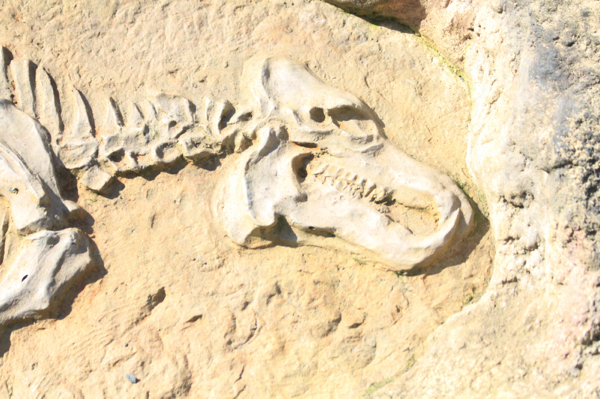
A new study is strongly suggesting that humans, not climate change or any other factors, were largely responsible for the extinction of many large species of animals, birds and reptiles over the last 50,000 years.
The answer to the question of whether humans or so-called climate change was responsible for the extinction of hundreds of large animal species has stumped researchers for decades.
By "large," researchers were referring to animals weighing at least 45 kilograms, known collectively as megafauna. During this period, at least 161 species of mammals went extinct, based on the remains discovered so far.
The biggest animals, especially land-dwelling herbivores weighing over a ton (megaherbivores), were hit the hardest. Fifty thousand years ago, there were 57 species of megaherbivores. Today, only 11 survive, including elephants, giraffes, hippopotamuses and rhinoceroses. Even then, many of these surviving species continue to be endangered by population declines.
Researchers from the Danish National Research Foundation's Center for Ecological Dynamics in a Novel Biosphere (ECONOVO) at Aarhus University now conclude that many of these species were hunted to extinction by humans.
This conclusion comes from a review article published in the journal Cambridge Prisms: Extinction. The researchers synthesized and analyzed existing research from various fields that investigated a variety of factors that may have contributed to the extinction of megafauna species, including climate and habitat needs, dietary preferences of affected species and human hunting.
They also considered studies from other relevant fields, including climate and vegetation histories over the past three million years, archaeological data on human expansion and lifestyle, including changing dietary habits and the evolution and dynamics of animal species over the past 66 million years.
"The extensive and selective loss of megafauna over the last 50,000 years is unparalleled in the last 66 million years. Previous climate changes didn't cause large, selective extinctions, suggesting climate wasn't the main driver," Jens-Christian Svenning, head of ECONOVO and lead author of the article, explained. "Another clue that climate wasn't the main factor is that recent megafauna extinctions occurred in both stable and unstable climate regions."
As humans became more effective hunters, megafauna became even more vulnerable
Archaeological evidence, such as traps for large animals and isotope analysis of ancient human bones and spear points, indicated that early humans hunted and consumed large mammals.
"Early modern humans were skilled hunters capable of reducing large animal populations. These large animals were particularly vulnerable due to their long gestation periods, few offspring and slow maturation," Svenning said.
The analysis showed widespread human hunting of large animals like mammoths, mastodons and giant sloths across the globe. These species went extinct at different times and rates worldwide. In some areas, extinction happened quickly, while in others, it took over 10,000 years. However, it always occurred after modern humans arrived or, in Africa's case, after significant cultural advancements.
Species vanished from all continents except Antarctica, across various ecosystems–from tropical forests and savannas to Mediterranean and temperate forests and steppes, and even arctic regions.
"Many extinct species thrived in different environments, so their extinction can't be explained by climate change alone. Most species lived in temperate to tropical conditions and should have benefited from the warming at the end of the last ice age," Svenning explained.
The researchers emphasized that the extinction of megafauna has had significant ecological impacts. Large animals played a crucial role in ecosystems by affecting vegetation structure, seed dispersal, and nutrient cycling. Their disappearance has led to major changes in ecosystem functions and structures.
Svenning noted: "Our findings underscored the need for active conservation and restoration efforts. Reintroducing large mammals can help restore ecological balance and support biodiversity, which developed in environments rich in megafauna." (Related: Endangered reptile species being sold as pets could be in danger of extinction warn scientists.)
For more related stories, visit Extinction.news.
Watch the following video entitled "What caused the Pleistocene extinctions?"
This video is from the Daily Videos channel on Brighteon.com.
More related stories:
Noise pollution from offshore wind turbines could lead to the EXTINCTION OF WHALES.
Sources include:
Please contact us for more information.



















